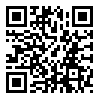Mon, Feb 16, 2026
[Archive]
Volume 5, Issue 4 (2-2024)
Int. J. Ethics Soc 2024, 5(4): 7-14 |
Back to browse issues page
Download citation:
BibTeX | RIS | EndNote | Medlars | ProCite | Reference Manager | RefWorks
Send citation to:



BibTeX | RIS | EndNote | Medlars | ProCite | Reference Manager | RefWorks
Send citation to:
Hosseini F, Dibaji S E, Harirchi F. Examining the Moral Values in Shanfara’s Lamiyat al-Arab using Thomas Nagel’s Ethical Theory. Int. J. Ethics Soc 2024; 5 (4) :7-14
URL: http://ijethics.com/article-1-276-en.html
URL: http://ijethics.com/article-1-276-en.html
1- PhD student, Department of Arabic Language and Literature, Science and Research Branch, Islamic Azad University, Tehran, Iran
2- Department of Arabic Language and Literature, University of Tehran, Tehran, Iran ,dibajy@ut.ac.ir
3- Department of Arabic Language and Literature, Science and Research Branch, Islamic Azad University, Tehran, Iran
2- Department of Arabic Language and Literature, University of Tehran, Tehran, Iran ,
3- Department of Arabic Language and Literature, Science and Research Branch, Islamic Azad University, Tehran, Iran
Abstract: (2096 Views)
Introduction: Shanfara is one of the most prominent Arab poetries. His poems, especially his ode Lamiyyeh, along with the poems of other notable pre-Islamic Arab poetries, have a specific literary and sociological reputation. He was living during the Jahili era. However, his writings are full of strong moral principles and foundations, indicating the existence of excellent human thoughts and ideas, as he has mentioned some of the most important values and principles in his poetry. This descriptive-analytical article uses Thomas Nagel’s ethical theory to investigate the ethical principles and values presented in Shanfara’s Lamiyat al-Arab.
Materials and Methods: This article uses a library and review method. In order to achieve the research objective, we explored the books relating to the subject and searched articles matching the research keywords in ISC and Science Direct databases from 1990 to 2023.
Conclusion: According to Thomas Nagel’s theory, Shanfara, as an Arab poet, is a freedom-loving human and a high-minded fighter whose character does not reflect racial or class discrimination and injustices used to rule society. Shanfara, to remove such inhuman customs, chose to fight. In addition, he was courageous, brave, and at the same time, forgiving and generous. He appreciates his friends, and while being able to exercise power and control, he does not prefer himself to others and respects their rights. Evidence of outstanding and valuable human and moral principles is extracted from the Lamiyah al-Arab poem.
Materials and Methods: This article uses a library and review method. In order to achieve the research objective, we explored the books relating to the subject and searched articles matching the research keywords in ISC and Science Direct databases from 1990 to 2023.
Conclusion: According to Thomas Nagel’s theory, Shanfara, as an Arab poet, is a freedom-loving human and a high-minded fighter whose character does not reflect racial or class discrimination and injustices used to rule society. Shanfara, to remove such inhuman customs, chose to fight. In addition, he was courageous, brave, and at the same time, forgiving and generous. He appreciates his friends, and while being able to exercise power and control, he does not prefer himself to others and respects their rights. Evidence of outstanding and valuable human and moral principles is extracted from the Lamiyah al-Arab poem.
Type of Study: Review Article |
Subject:
Special
Received: 2023/06/30 | Accepted: 2023/07/24 | Published: 2024/02/1
Received: 2023/06/30 | Accepted: 2023/07/24 | Published: 2024/02/1
Send email to the article author
| Rights and permissions | |
 |
This work is licensed under a Creative Commons Attribution 4.0 International License. |








